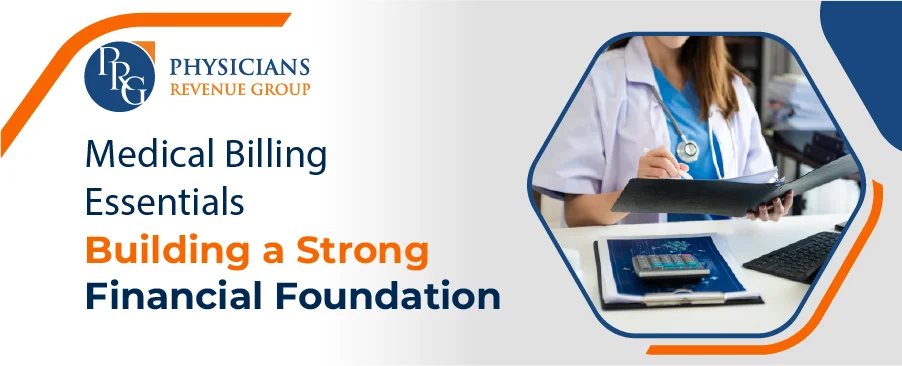
Email: info@prgmd.com | Call: +1 (630) 242-6474
Business hours: 9:00 to 5:00 | Monday to Friday
Email: info@prgmd.com | Call: +1 (630) 242-6474
Business hours: 9:00 to 5:00 | Monday to Friday

Table of Contents
ToggleIn the intricate healthcare industry, where quality patient care is the top priority, medical billing is an often overlooked yet important aspect of the industry. Accurate medical billing services are the backbone of any healthcare practice, ensuring that providers receive fair compensation. In this blog, we will delve into the important medical billing essentials, shedding light on the particulars of the medical billing process and highlighting its importance in establishing a robust financial foundation for healthcare practices and professionals.
Medical billing and coding all fall under state and federal compliance guidelines, with HIPAA being the most significant. The Health Insurance Portability and Accountability Act or HIPAA:
Furthermore, the HIPAA guidelines cover electronic medical records and ICD-10 (International Classification of Diseases) uniform diagnostic codes issued by the WHO (World Health Organization).
Medical billing is, without a doubt, a vital component for running a medical practice, as it ensures the smooth operations of the practice’s revenue cycle. To that effect, medical billers and coders need to familiarize themselves with varying medical regulations and public and private insurance plan policies. It is another one of the important medical billing essentials that billing personnel have specialized knowledge of:
Effectively managing all of these components guarantees an improved flow of revenue for the medical practice.
Medical coding and billing services are solely responsible for translating medical services/interventions into financial information. While medical coding takes place in the background to quantify the due reimbursements, billing becomes essential to medical systems by overseeing payment processes.
Medical billing becomes vital as it entails the following:
Let’s take a deeper look into the medical billing essentials and components.
Medical billers collect information from the moment a patient walks in to register or schedule an appointment. The entire procedure entails getting patients to fill in necessary forms that confirm their home address and insurance coverage. Moreover, when patients check out, billers collect co-payments.
The sole purpose of front-end billing is to confirm a patient’s financial responsibility. It entails verifying whether or not the services a patient needs are covered by their insurance plans and submitting prior authorizations wherever necessary.
Standardization of the RCM processes and the streamlining of workflows help in:
Furthermore, regular audits of the processes and optimizations facilitate further improvements.
Continuous compliance audits, including both internal and external audits, assist in ensuring compliance to:
These combined minimize fraud risks, penalties, and claim denials.
The top most common claims denial reasons include:
Written communication is the most widely used type of communication in both social and healthcare settings for varying purposes, including:
Some common billing process problems include:
Share:
Categories
Recently Added

What is an ABN in medical billing?

What does a Clearinghouse do During Claims Submission?

What is EOR in Medical Billing?
We Would Love to Assist You!
We treat your data confidentially and don’t share any information with a third party.